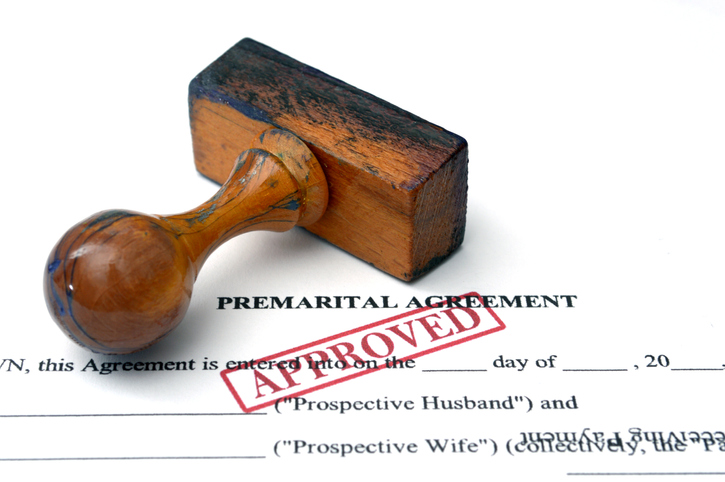
Premarital agreement
Some Texas premarital agreements may include a binding arbitration clause. A party may compel arbitration when the claims at issue are within the scope of a valid and enforceable agreement to arbitrate. If the claim falls within the agreement’s scope and there is no defense to enforcing it, the court must compel arbitration. Fraud may be a defense against compelled arbitration, but the party must show that the fraud was specifically related to the arbitration provision.
A husband recently appealed a denial of his motion for arbitration in his divorce proceeding. The parties signed a premarital agreement that included an arbitration clause. The wife filed a petition for divorce in July 2014. In 2016, she filed an amended petition. Neither petition mentioned the premarital agreement. The husband filed an answer in 2016, but did not mention the premarital agreement either.
In a second amended petition, the wife stated there was a premarital agreement and requested it be set aside and vacated. She alleged she entered into it involuntarily and that it was unconscionable.
Husband Moves to Compel Arbitration Under Premarital Agreement
The husband moved to compel arbitration in June 2016. He filed an amended answer in August, objecting to a trial due to the premarital agreement.
The court held a hearing on the motion to compel arbitration in August 2019. The attorney who reviewed the premarital agreement on behalf of the wife said they had reviewed it and the wife signed it, but he did not have a file. The wife testified the attorney reviewed the agreement and told her it was “standard.” She said he wrote a letter for her to give to the husband’s attorney. She said the attorney did not explain anything further, but the letter stated the attorney had explained the agreement to her. She said she signed the agreement without reading it herself or asking questions because she trusted the husband. She found out the husband was having an affair after the marriage and thought he just married her to obtain residency. She stated she would not have signed the agreement if the attorney had gone over the premarital agreement with her as her current divorce attorneys did. She also testified that she owned businesses and had handled business documents. She stated she had the agreement and choose not to read it or keep a copy.
Trial Court Finds that Arbitration Would “Substantially Prejudice” Wife
The trial court denied the motion to compel arbitration, finding the husband had waived the right to arbitrate and that the wife would be “substantially prejudiced” by being required to arbitrate “after more than 5 years of litigation.” The husband appealed.
The husband argued the trial court erred in denying his motion because the divorce proceedings came within the scope of a valid arbitration provision.
The appeals court found the wife did not present any evidence that the arbitration agreement had been induced by fraud and was unenforceable. She had her own attorney review the agreement after the husband advised her to do so. She chose not to review the agreement herself. The wife’s divorce attorney acknowledged that the evidence presented to show fraud or invalidity was not specific to the arbitration agreement. The appeals court found the arbitration agreement was valid.
The husband also argued the court erred in finding he waived his motion to compel arbitration. To show that a party has impliedly waived arbitration, they must have “substantially invoked the judicial process,” and prejudiced the other party. Participating in discovery does not necessarily substantially invoke the judicial process, but pursuing extensive discovery might.
Courts may consider a number of factors in determining whether a party substantially invoked the judicial process. Those factors include how long they waited to compel arbitration and the reasons for the delay, whether they knew about the agreement during the delay, how much discovery they conducted, and whether that discovery would be available or useful in arbitration.
Appellate Court Finds Error in Failure to Compel Arbitration
The appeals court noted the husband was not served with the initial petition and moved to compel arbitration shortly after being served with the amended petition. At a hearing in June 2016, the trial court ordered the parties to continue discovery until the next hearing. The appeals court found the wife did not present any evidence showing the husband’s actions in the divorce proceedings prejudiced her.
The appeals court further found that the delay between the husband’s motion and the trial court’s ruling was attributable to both parties. The wife had not shown that the discovery would be useful in arbitration, was related to the merits of the case, or would be unavailable in arbitration. Furthermore, she had not shown that the activities in the litigation would be duplicated in arbitration. The appeals court found the husband had not substantially invoked the judicial process.
The appeals court further found the wife had not shown prejudice. She had added the husband’s business as a defendant and pursued a default judgment against it. Both parties had replaced attorneys while the case was pending. Both conducted discovery.
The appeals court found the trial court abused its discretion when it denied the husband’s motion to compel arbitration and reversed and remanded the case.
Divorcing After Entering into a Premarital Agreement? Call McClure Law Group
This case shows the importance of understanding the provisions in a premarital agreement. Whether you are planning to enter into a premarital agreement or anticipating a divorce involving a premarital agreement, a knowledgeable Texas family law attorney can help you. Schedule a consultation with McClure Law Group at 214.692.8200.
 Texas Divorce Attorney Blog
Texas Divorce Attorney Blog

